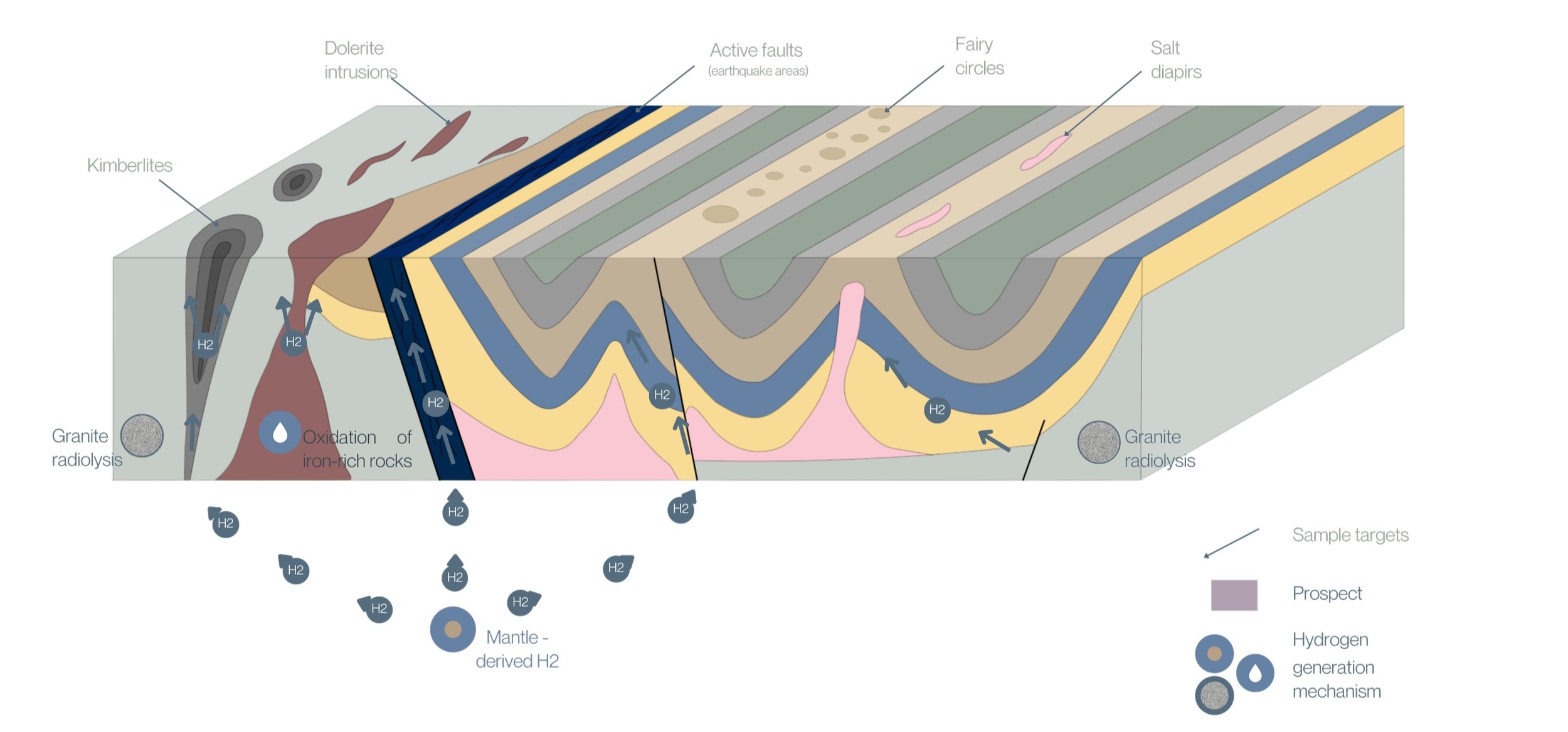Natural Hydrogen is a newly discovered geological source of inexhaustible energy.
Not all hydrogens are created equally
The Market for Natural Hydrogen
Natural hydrogen is unlike all other types of manufactured hydrogen which require substantial energy input to produce. Natural hydrogen is estimated to be three to four times cheaper than hydrogen manufactured via electrolysis or steam reformation. Natural sources of hydrogen from geological processes are a clean, low emissions source of energy.
Where can you find natural hydrogen?
Natural Hydrogen is a renewable source of clean energy. Current theories include its generation in the basement rocks of the earth through inorganic reactions that have been active for millions of years and it then migrates through the rock layers until it either escapes or is trapped in suitable geological formations.
See how the National Hydrogen Strategy can achieve a clean, innovative, safe and competitive hydrogen industry that benefits all Australians.
FAQs
-
Since 1959. Yes, that’s 64 years ago!
Francis Thomas Bacon built the Bacon Cell, the first practical 5 kW hydrogen-air fuel cell to power a welding machine.
-
Electrolysis involves using an electric current to drive a chemical reaction. In the production of hydrogen, an electrolyser is used to split water into hydrogen and oxygen. The hydrogen is collected while the oxygen is allowed to escape harmlessly.
-
A fuel cell operates in the opposite manner to an electrolyser, transforming the energy in hydrogen into electricity by means of a chemical reaction triggered by oxygen. This process produces water as a byproduct.
-
Natural hydrogen is an efficient carbon free fuel that can be used for heat, transportation, power generation, and manufacturing chemicals or other materials.
Petroleum refining and fertiliser production through the ammonia process are currently the largest users of hydrogen, while transportation and utilities are emerging markets. Hydrogen and fuel cells can provide energy for use in diverse applications including distributed or combined heat and power, backup power, systems for storing and enabling renewable energy; portable power; and vehicle fuel systems which are more flexible than current battery powered electric vehicles.
-
Yes it is.
Hydrogen is a well-established energy carrier in Australia and has been used safely for many years. The government is working with Standards Australia and other organizations to align with international standards and establish appropriate regulations to ensure public safety. They are also committed to increasing public awareness of hydrogen with the help of community members.
-
Natural hydrogen is a clean and efficient source of energy with a limited extraction and separation footprint. It does not require purified water, CO2 storage, or waste disposal, making it a cost-effective option compared to other forms of hydrogen.




